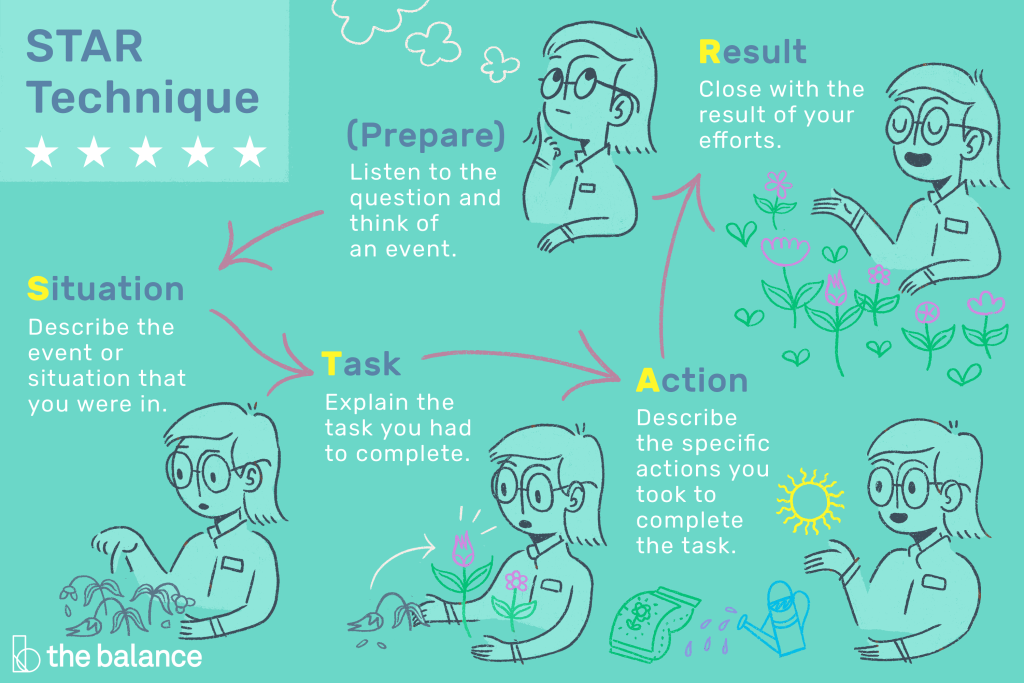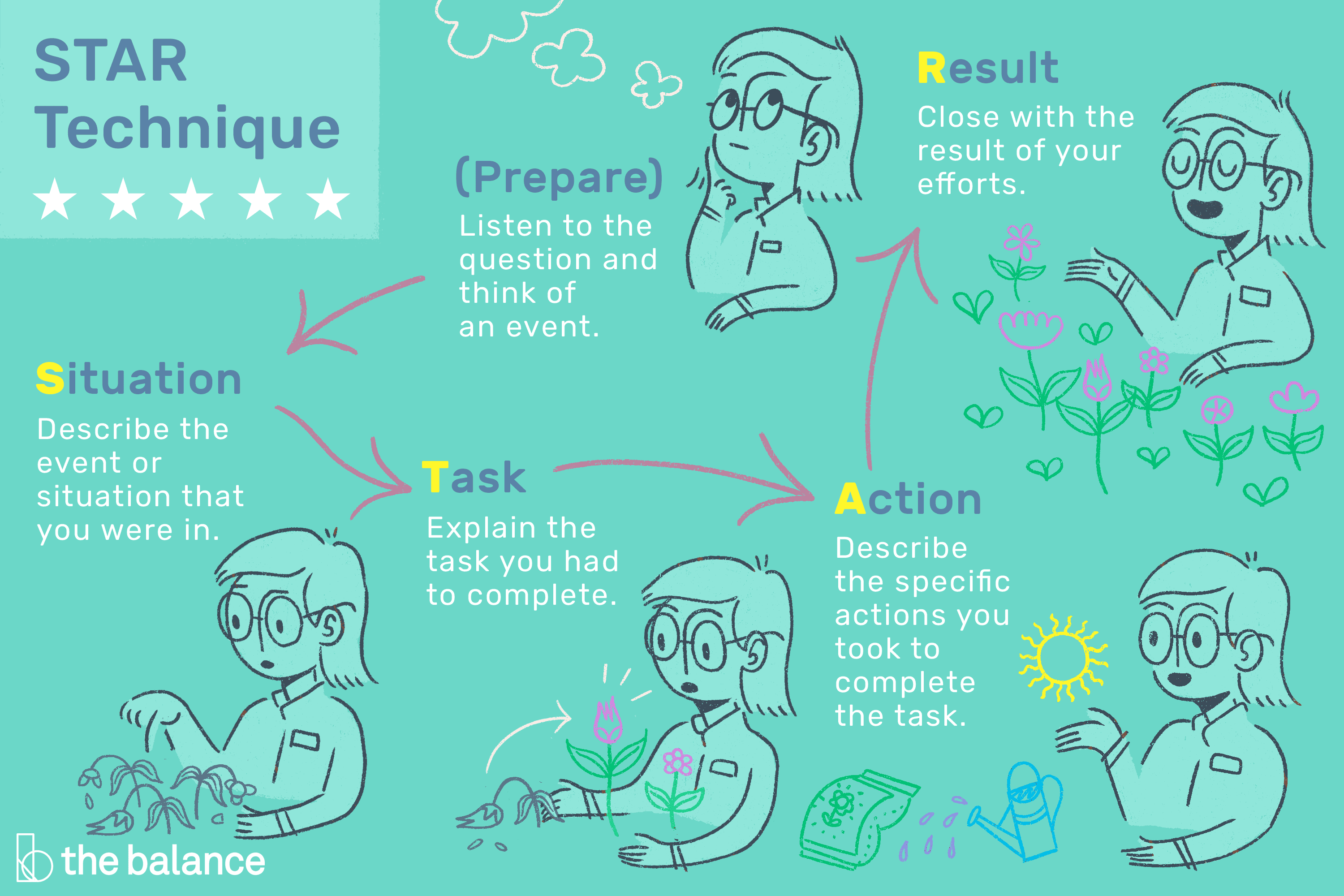Do you struggle to give concise answers to interview questions? Are you unsure how to share your accomplishments during an interview without sounding boastful? The STAR interview response technique can help. Using this method of answering interview questions lets you provide concrete examples or proof that you possess the experience and skills for the job at hand.
STAR stands for Situation, Task, Action, Result. Using this strategy is particularly helpful in response to competency-focused questions, which typically start out with phrases such as “Tell about a time when…” and “Share an example of a situation where…”
Read below for a more detailed description of the STAR interview response technique, and examples of how to best use it.
![]()
![]()

What Is the STAR Interview Response Technique?
The STAR interview response technique is a method for answering behavioral interview questions. Behavioral interview questions are questions about how you have behaved in the past. Specifically, they are about how you have handled certain work situations. Since past performance can be a good prediction of the future, interviewers ask these questions to see if candidates have the skills and experiences required for the job.
Examples of behavioral interview questions include:
- Tell me about a time you had to complete a task under a tight deadline.
- Have you ever gone above and beyond the call of duty?
- What do you do when a team member refuses to complete his or her portion of the work?
Some interviewers structure their questions using the STAR technique. However, job seekers can also use the STAR interview method to prepare for behavioral interview questions.
STAR is an acronym for four key concepts. Each concept is a step the job candidate can take to answer a behavioral interview question. By completing all four steps, the job candidate provides a thorough answer. The concepts in the acronym include:
Situation: Describe the context within which you performed a job or faced a challenge at work. For example, perhaps you were working on a group project, or you had a conflict with a coworker. This situation can be from a work experience, a volunteer position, or any other relevant event. Be as specific as possible.
Task: Next, describe your responsibility in that situation. Perhaps you had to help your group complete a project under a tight deadline, resolve a conflict with a coworker, or hit a sales target.
Action: You then describe how you completed the task or endeavored to meet the challenge. Focus on what you did, rather than what your team, boss, or coworker did. (Tip: Instead of saying “We did xyx,” say “I did xyz.”)
Result: Finally, explain the outcomes or results generated by the action taken. You might emphasize what you accomplished, or what you learned.
How to Prepare for an Interview Using STAR
Since you won’t know in advance what interview techniques your interviewer will be using, you’ll benefit from preparing several scenarios from the jobs you’ve held.
First, make a list of the skills and/or experiences that are required for the job. You might look at the job listing for suggestions and match your qualifications to those listed in the posting. Then, consider specific examples of times that you displayed those skills. For each example, name the situation, task, action, and result.
You can also take a look at common behavioral interview questions, and try answering each of them using the STAR technique. Whatever examples you select, make sure they are as closely related to the job you’re interviewing for as possible.
Example of Interview Questions and Answers Using STAR
Example Question 1: Tell me about a time you had to complete a task under a tight deadline. Describe the situation, and explain how you handled it.
Example Answer 1: While I typically like to plan my work out in stages and complete it piece by piece, I can also achieve strong work results under a tight deadline. Once at a former company, an employee left days before a big project of his was due. I was asked to take it over, with only a few days to learn about and complete the project. I created a task force, delegated work, and we all completed the assignment with a day to spare. I think I tend to thrive under tight deadlines.
Example Question 2: What do you do when a team member refuses to complete his or her portion of the work?
Example Answer 2: When there are team conflicts or issues, I always try my best to step up as team leader if needed. I think my communication skills make me an effective leader and moderator. For example, once I was working on a team project, and two of the team members got into an argument, both refusing to complete their assignments. They were both dissatisfied with their workloads, so I arranged a team meeting where we rearranged the assignments for the team. This made everyone happier and more productive, and our project was a success.
Source: thebalancecareers.com
